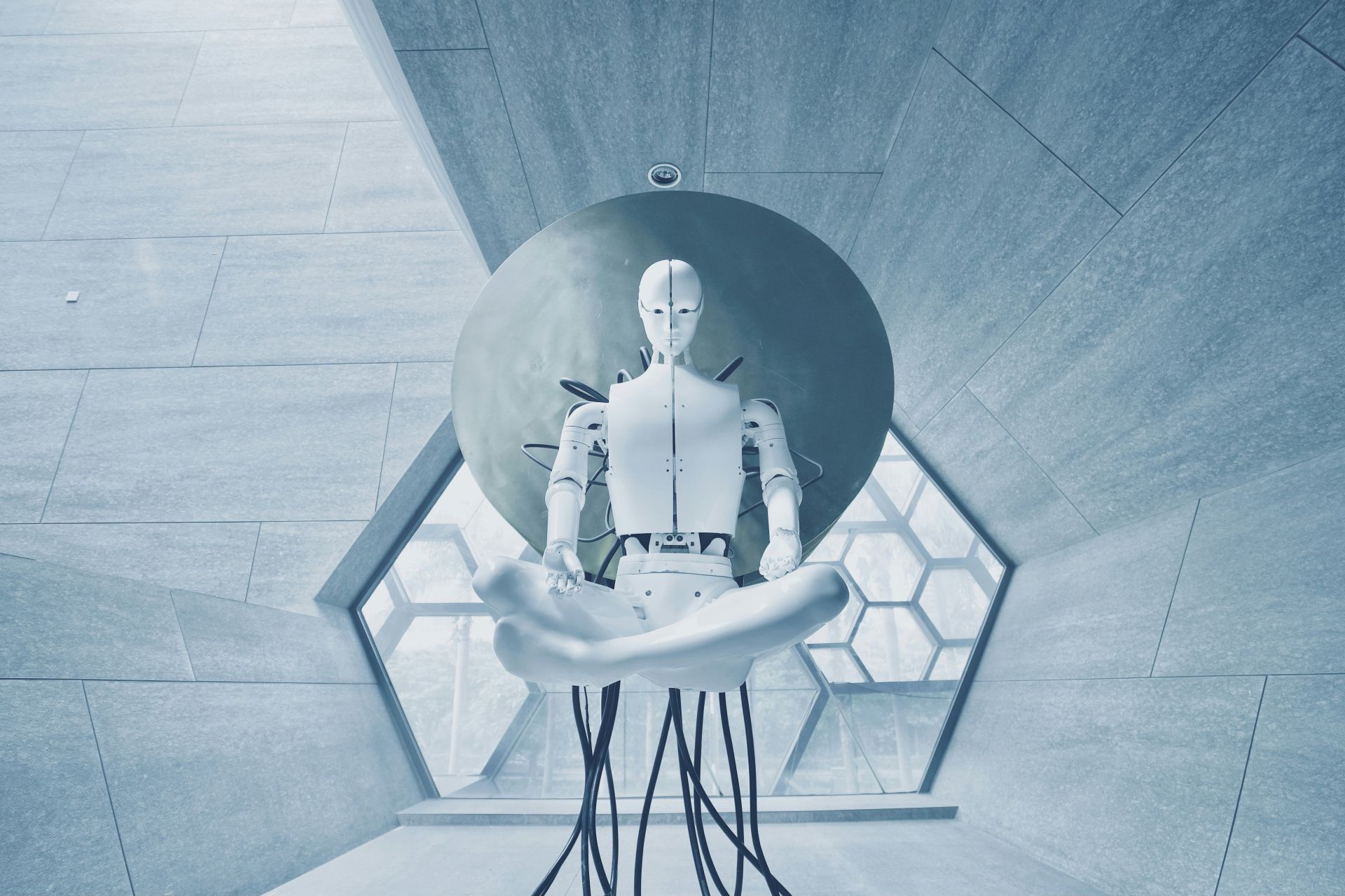We’ve all heard about how artificial intelligence (AI) will change the world – or take over it, if you’re a Terminator fan. AI programs evolve rapidly on a daily basis as tools learn and improve. The technology has already found its way into various sectors, for example entertainment, analytics and art, but this does not happen without backlash.
AI programs for commercial use have been called controversial and counterfeit, particularly in creative industries. Indeed, most generative AI, like Midjourney, “learns” from others’ assets and pre-existing art, bringing ownership, credit, and compensation into question.
It’s not just the entertainment and creative industries that are being disrupted by AI. The technology has found potential use in the marketing industry, from statistics to copywriting, and is causing a storm. AI can be used to streamline marketing strategies, improve efficiency and analyze data.
While some companies are already integrating AI into their daily tasks, others are sticking to humans for now. Artificial Intelligence is undoubtedly a game changer for the marketing industry as it can streamline processes and observe audience or industry trends better than the human eye. But the technology still needs to develop before it is ready for use.

What is artificial intelligence?
Artificial intelligence is where a machine or software simulates human intelligence. These AIs can then be used to perform tasks that normally require human-level intelligence, such as reading, writing, speaking, and visual recognition.
The field of artificial intelligence became popular with the advent of computers and science fiction media. Imagination is quickly becoming a reality as more and more IT-related companies and studies turn to and develop artificial intelligence.
Understanding Machine Learning and Deep Learning
Before we dive into the different ways artificial intelligence is revolutionizing the marketing industry, it’s important to understand the technology behind it. When you search for artificial intelligence, you will see two common terms: machine learning and deep learning.
Machine learning is one of the most popular approaches to artificial intelligence. This is a type of AI that learns by being “fed” specific data from humans and analyzes that data with an algorithm. Compared to deep learning AI, it requires more “human” intervention during the learning process.
Deep learning uses complex algorithms that are modeled on the human brain and is a specialized subset of machine learning. Deep learning allows artificial intelligence to learn and grow like a human would, as well as analyze data with a logical structure similar to that of a human.
It’s important to understand the difference because artificial intelligence that uses basic machine learning or advanced deep learning has different use cases. For example, when it comes to predicting customer behavior, developing artificial intelligence with deep learning technology can provide more accurate results because it “thinks” like a human would.

Automating content creation
In the marketing industry, it’s all about content. Make no mistake, human content produced by a SEO agency in Melbourne or talented freelance writing professionals will always have a place. But we are already seeing major media companies adopting artificial intelligence to write content, for example, The Washington Post. Their “local” artificial intelligence, Heliograf, has written more than 850 articles published for the media.
Not only can artificial intelligence help automate content creation, but it can also accelerate content curation and delivery. Businesses will be able to create and distribute content faster using artificial intelligence, which will also allow them to reduce costs by paying for human services.
Artificial intelligence used for creating content such as articles or writing is called NLG (natural language generation). It can generate unique and natural text for marketing companies based on parameters such as subject, word count and data to use.
Customer Service Bots
Artificial intelligence can be used to automate customer service, monitor reviews and feedback, and provide support services. Statistics show that 6 in 10 consumers have interacted with an AI chatbot in the last six months, 24% more than people who picked up the phone for human support services. according to an investigation conducted by Cyara.
From a user perspective, the biggest benefits of chatbots are 24/7 support, speed and autonomy. There is no need to wait for office hours and the response time is better than that of a human. From a business perspective, it also saves time and money paying for a human support team, and it increases customer satisfaction because they can receive support whenever they need it. need.
Even beyond the marketing sector, many Australian businesses have adopted AI-powered chatbots, from the communications sector to healthcare and education. Some good examples include Optus for customer support and Healthdirect Australia’s chatbot which helps patients understand symptoms and seek professional advice.
Predict customer behavior
When it comes to marketing, understanding your audience makes the difference between the success or failure of a campaign. Unlike humans, artificial intelligence can operate 24/7 with real-time data and statistics to analyze industry trends and changes in consumer habits to provide accurate forecasts on the customer behavior to a level that a human cannot.
Technology and artificial intelligence have evolved to the point where they can consume and analyze data rapidly at a speed impossible for humans. A good example of this is for example with Facebook and Google Ads. Companies use technology not only to analyze data from millions of users every day, but also to use that data to tailor ads and market products personally.
Analyze massive amounts of data
In the digital age, nothing is more valuable and important than data, but what do you do when you have it? Data is essential for every industry and business to learn more about your potential consumers, your current audience, and what customers want.
The biggest problem right now is that processing all this data without the help of technology is time-consuming and inefficient. Artificial intelligence can streamline the process of providing accurate reports and forecasts by processing large amounts of data in real time. He is a fast game changer and disruptor in the marketing industry due to his versatility and insight into marketing trends.
Fraud detection
AI is currently a game-changer in fraud detection, extending to the marketing industry. AI-based fraud detection is more effective than traditional fraud detection strategies and can be used to prevent people from signing up for campaigns using fake email addresses, prevent fake transactions from e-commerce and helping businesses and customers.
Campaigns, pitches and models
Gone are the days of spending hours or days creating campaigns or pitching ideas: it’s possible to have design mockups and copy them in an hour thanks to generative AI. ChatGPT is a good example. It can easily write all text for marketing campaigns with simple user prompts, entering information about the product, target audience and word count.
Artificial intelligence will become a force to be reckoned with and it is already disrupting the marketing industry. It’s a versatile tool that can be used for everything from generating copy and designs to analyzing user data. Although AI tools and programs are still in their infancy, they are still used throughout the industry and will certainly see growth in the years to come.
Featured image credit: Lucas Blazek/Unsplash


